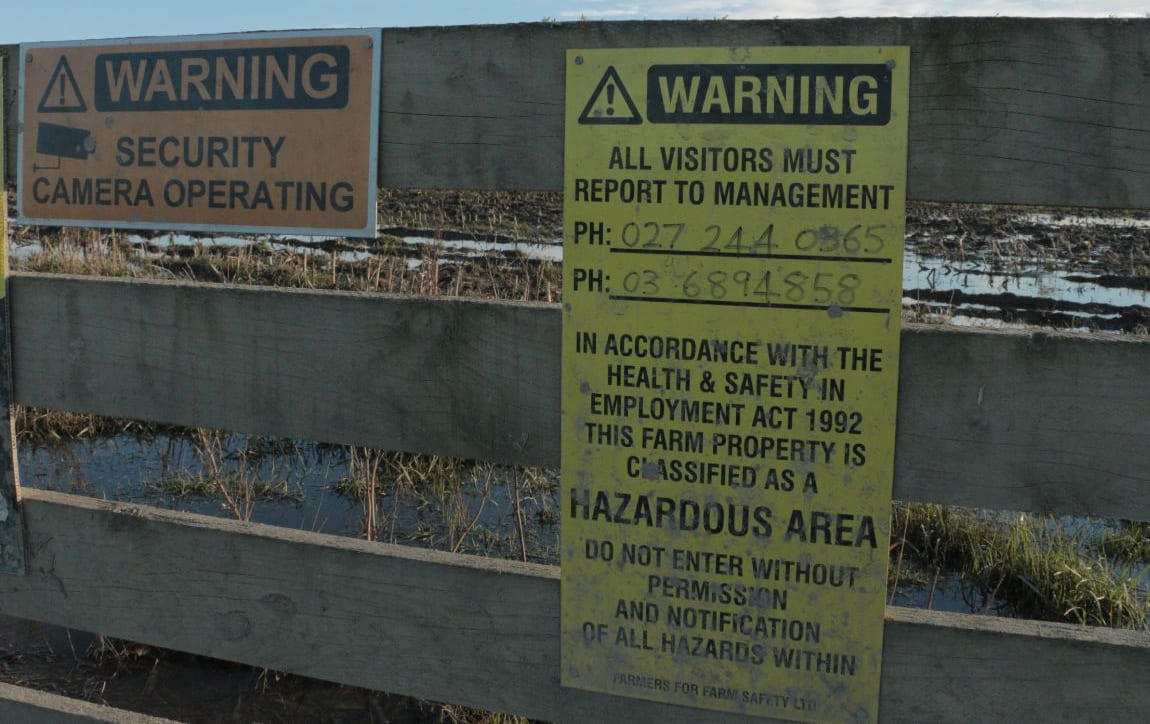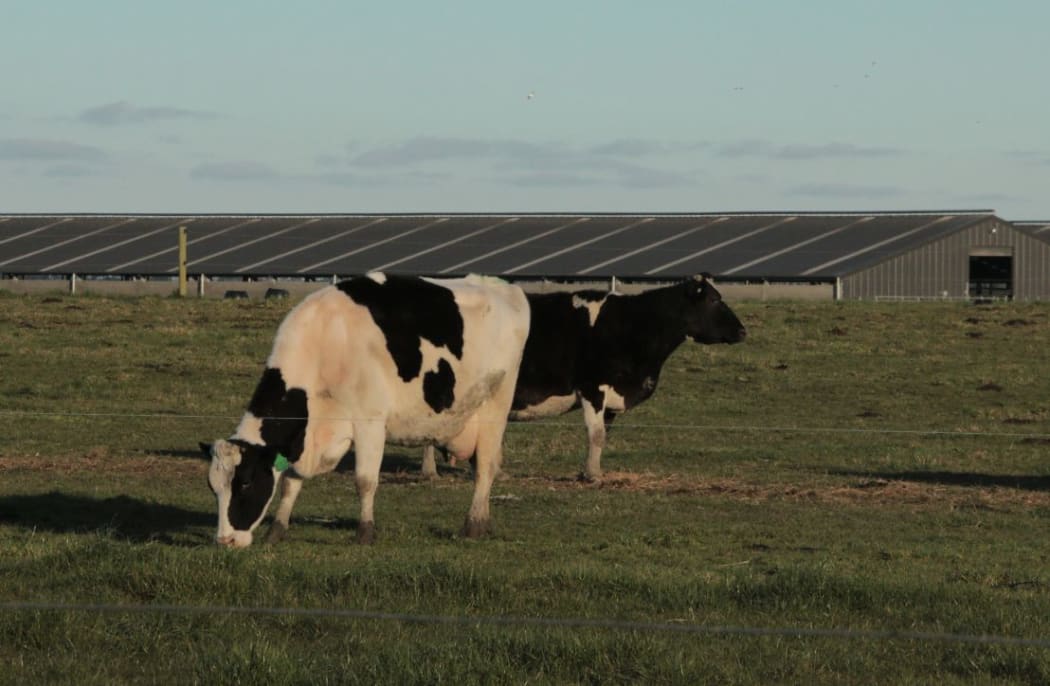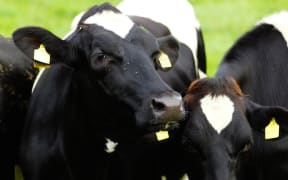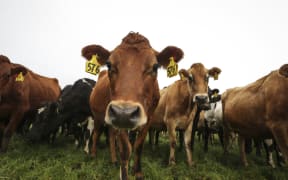Farmers in a meeting about the cattle disease outbreak are pushing for answers from the government for what some say is a slow response to a serious disease.

A warning sign on the gate of one of the infected farms. Photo: RNZ / Alexa Cook
Mycoplasma bovis, a bacterial infection not seen in this country before, has been found on two properties owned by the Van Leeuwen Dairy Group near Glenavy, who have 16 farms in the region.
The Ministry for Primary Industries (MPI) met with farmers at the Papakaio community hall near Oamaru this morning.
The incurable disease causes mastitis, lameness, abortions, and pnuemonia - and it can lead to deaths in cows and calves.
Ten days ago testing from the ministry confirmed the outbreak was in New Zealand on one of the Van Leeuwen Dairy Group farms near Morven.
On Monday testing revealed another one of the group's 16 properties is infected.
David Ellis has farms over the fence from two of the Van Leeuwen Dairy Group properties and was in the meeting, which about 150 farmers attended.
"We've had a briefing from MPI and also meetings with the vet that has been involved with the Van Leeuwen Group from the start... they couldn't have spoken more highly of the way the van Leeuwen's have acted."
He said farmers raised several issues.
"Some farmers are asking for all the cows to be killed, and wanted it put to a vote - but no one is prepared to vote.
"Main questions were on how we can prevent anything happening to us.
"There's a bit of anguish against MPI for not being active enough about the quarantine farms, and questions over whether they really are quarantine farms..."
People in the meeting didn't think the rules were strict enough and questioned whether the signs clearly indicated that it was in 'lock down'. Mr Ellis said people were also asking if vehicles were being washed when they came and went from the two infected farms.
"The ministry said signs were being made up today, so they should be put on the farms soon.
"They've also made up signs that other farmers can use for people coming on their own unaffected farms at this stage.. they can be used for wash bays and to anyone coming in off other farms."
MPI told the farmer meeting it was still aiming to eradicate the disease and that might be possible using strict containment procedures.
Cows from infected farms may have been moved
Earlier, MPI director of response Geoff Gwyn said it found out other farms may have received stock from the Van Leeuwens.
"Our tracing efforts show that over the last six months there's been less than 20 movements of stock off farm in that group of farms, which is actually quite a small number.
"We're in contact with all of those farmers and we'll be doing surveillance and testing on those farms."
Mr Gwyn said the checks were precautionary and the farms were not yet subject to restrictions.
The ministry had received three or four calls alerting it to suspicious symptoms in cattle elsewhere, he said.
The ministry said 25 animals on the first affected farm had been euthanised by the farm for welfare reasons.
A further group has been checked by a vet and will be sent to slaughter.
Fifty neighbouring farms to the 16 properties in the Van Leeuwen Dairy Group are also being tested.

Cows on a farm infected with the disease. Photo: RNZ / Alexa Cook
It has been 10 days since the disease was confirmed in New Zealand by MPI, and about a third of neighbouring farms had been tested.
The mayor of Waimate, Craig Rowley, said the disease is a big deal for South Canterbury and the nation, and it is clear the Ministry for Primary Industries is struggling to get enough tests done.
Mr Rowley said it was clear from the number of farmer questions today they need answers urgently.
When RNZ asked about the speed of the testing Mr Gywn said the initial outbreak was the focus.
"A lot of our prioritised effort has been on ensuring that restricted place notices are on the 16 farms that form the wider group," he said.
"Our tracing efforts have been focused around ensuring that we understand movements across those farms and off those farms."
The ministry believed it had enough people on the ground to deal with the outbreak.
"We've got around 40 people working here in Wellington and at our animal health laboratory, and we've got 30 to 40 working in Oamaru," Mr Gwyn said.
"I think that is sufficient to manage what we're facing."





